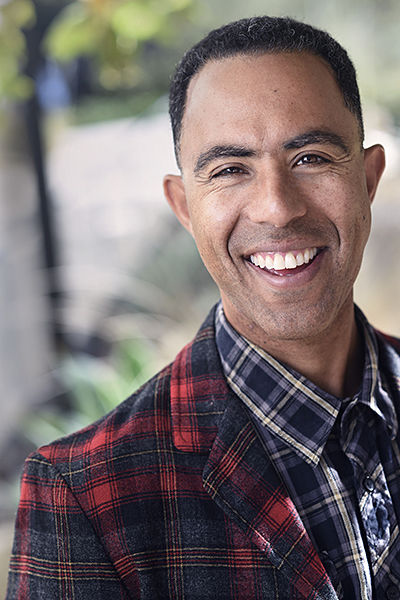One of the nation’s leading theatres and conservatories was rocked by controversy last week when a former employee filed a lawsuit alleging a decade-long pattern of racial discrimination and harassment. Stephen Buescher, who was employed by San Francisco’s American Conservatory Theater as a faculty member in its MFA program from 2008 to 2018, and was hired to work as a choreographer on multiple productions on the theatre’s mainstage, filed a 28-page complaint in the Superior Court of California on Tuesday, Feb. 19, detailing incidents and statements during his years at ACT which, his lawyers at Medina Orthwein LLP said in statement, created “a racially hostile environment and…a pattern and practice of systematically discriminating against Black artists, faculty, staff, and students.”

During Buescher’s time at ACT, he was the only full-time Black faculty member. In an interview last week, he said that he left the theatre in May 2018 because of racial discrimination. (He is currently on faculty at the theatre program at University of California-San Diego.) “It became a situation that was intolerable for me,” Buescher said. “It was a cycle of me watching more students go through the same things and seeing similar things happening to other guest artists.”
Indeed, while Buescher’s complaint includes allegations of racial profiling by ACT security, failure to credit or pay him for work, and retaliation for raising issues of racial disparity, his lawsuit’s contents go beyond his own personal treatment to depict these instances as part of what he names as “institutional racism.” According to Buescher, in his position on the ACT faculty, “Black and brown students would come anonymously and privately” to him to report instances of racism, harassment, and microaggressions they faced. He said he was not given proper tools to make students’ complaints heard, or to protect them from retaliation. Instead he said the theatre’s human resources department told him, “If people wanted to speak up, they had to speak up for themselves.”
The lawsuit follows years of activity on the part of Buescher, who, after previously filing complaints with ACT’s human resources department, brought his concerns to ACT leadership and the board last February and made a formal complaint with the Equal Employment Opportunity Commission (EEOC). According to David Riemer, the chair of ACT’s board of trustees, “When he expressed his concerns, and they were brought to the attention of the board, actions were taken.” These included forming an equity, diversity, and inclusion subcommittee led by Joaquín Torres, and hiring Gwen Cochran Hadden, a diversity and generational consultant, to “assess our practices” and produce a report that was made available to staff and students.
Riemer also pointed to the hiring of a new artistic director, Pam MacKinnon, and a new managing director, Jennifer Bielstein, last year, stressing that that the board “put their experiences with and commitment to EDI as their top priorities” in the search and hiring process. He said that MacKinnon and Bielstein are both “steeped in issues concerning EDI,” and that “the proof is in the pudding”: MacKinnon’s first season as a.d. includes plays by four women of color. “Artistic choices on the stage are one of the most important places to see EDI values in practice,” said Riemer.
He also pointed to some internal hires: Amanda Williams was brought on as HR director, Peter Kuo was hired as associate director of the conservatory, and among 7 openings for guest instructors at the conservatory, 5 went to artists of color. “These aren’t things we’d like to do, they’re things we already have done,” said Riemer. “EDI work takes a lot of time, and we’re putting the time in. It’s an ongoing process, but we’re fiercely committed to it.”
In an interview, Buescher characterized these measures as “window dressing.” He said he’s “interested in having a conversation about more substantive programmatic change in the institute.” He resorted to legal action since his initial EEOC complaint, he said, because he “did not believe for a minute that ACT can authentically and meaningfully change in the current climate of the organization. They need someone from the outside not just to do an EDI workshop for a weekend but to work with them for the next three to five years.” It was ACT’s failure to take both his complaints and his recommendations seriously, Buescher said, that led him to file a lawsuit in open court. “It’s a lot,” he conceded, but added that “so much support is coming from all different corners of this country. I’m feeling really good about that.”
In response to last week’s news, Bielstein and MacKinnon convened the entire staff and student body of ACT for what Bielstein termed “very open and raw communications” about some of the systemic issues at the institution and the new leadership’s plans to address them. This morning they released a statement calling Buescher’s internal advocacy in early 2018 “a wake-up call for which ACT is very grateful.” And while they didn’t take the opportunity to dispute his legal claims, they did acknowledge, “Stephen’s sharing of his story with the public has empowered people to bring forward even more anguish and trauma, even during just this past week. We are incredibly sorry for the hurt people are experiencing, and we are grateful for even greater awareness.” They extended an apology to Buescher and any others who’ve “experienced insensitivity, racism, sexism, or other forms of oppression at ACT,” and affirmed that the institution is on “a formal path to building awareness and making meaningful change around EDI, specifically issues of race and ethnicity.” This effort at dismantling “anti-Black culture and disrupting systems of injustice” includes “work with the Racial Equity Institute, assembling a list of resources for every white member of our team to use to do work individually, expediting the launch of affinity spaces, and implementing the Intercultural Development Inventory with our senior team.”
Meanwhile Medina Orthwein LLP has launched a hashtag, #LiftTheCurtain, to gather the testimony of other current and former ACT employees and students about the theatre’s practices. At a public event last Wednesday night at the San Francisco venue PianoFight titled “#LiftTheCurtain on Racial Inequity in the Arts,” Buescher appeared alongside current and former ACT folks, including Stephanie Wilborn, the theatre’s community programs manager, who told the assembled crowd that “what Stephen has courageously said…is true.” Artist and activist Claudia Alick raised a provocative question for those engaged in EDI work: “Are we helping organizations perform the optics of justice while maintaining systems of injustice?”
For his part, Riemer said he couldn’t comment on the content of the lawsuit, and wouldn’t go so far as to say that the changes ACT has undertaken so far were a direct result of Buescher’s advocacy. But he did say, “There’s no question that when Stephen raised his concerns, it gave some renewed focus to something we were already committed to.”


